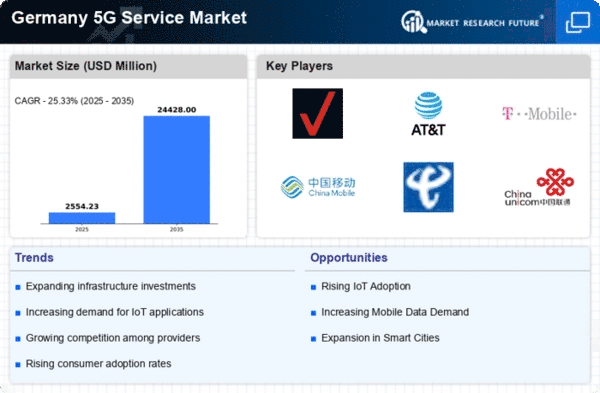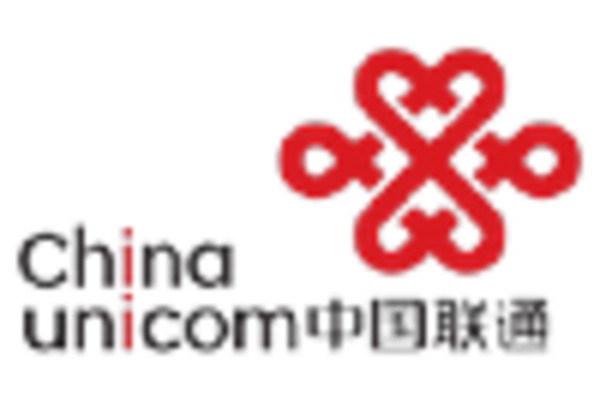Increased Focus on Industry 4.0
The shift towards Industry 4.0 is a significant driver of the 5g service market in Germany. As manufacturing processes become increasingly automated and interconnected, the demand for high-speed, low-latency communication networks intensifies. 5g technology enables real-time monitoring and control of industrial operations, enhancing efficiency and productivity. The German manufacturing sector, known for its innovation, is actively adopting 5g solutions to optimize production lines and supply chains. Reports indicate that by 2025, approximately 30% of manufacturing companies in Germany are expected to implement 5g technologies. This trend not only boosts the 5g service market but also positions Germany as a frontrunner in the global industrial landscape.
Government Initiatives and Support
Government initiatives play a crucial role in shaping the 5g service market in Germany. The German government has recognized the strategic importance of 5g technology for economic growth and innovation. Initiatives such as the National 5g Strategy aim to facilitate the rollout of 5g infrastructure across the country. This includes funding programs and regulatory support to encourage investment in 5g networks. As a result, the market is witnessing increased collaboration between public and private sectors, fostering an environment conducive to innovation. The government’s commitment to achieving widespread 5g coverage by 2025 is likely to enhance the overall competitiveness of the 5g service market, positioning Germany as a leader in digital transformation within Europe.
Rising Demand for High-Speed Connectivity
The 5g service market in Germany is experiencing a notable surge in demand for high-speed connectivity. As businesses and consumers increasingly rely on digital services, the need for faster and more reliable internet connections becomes paramount. This demand is reflected in the growing number of 5g subscriptions, which reached approximately 20 million in 2025, indicating a robust adoption rate. The proliferation of smart devices and IoT applications further fuels this trend, as users seek seamless connectivity for their devices. Consequently, telecommunications companies are investing heavily in expanding their 5g networks to meet this demand, thereby driving growth in the 5g service market. The competitive landscape is intensifying, with major players striving to enhance their service offerings to capture a larger share of this burgeoning market.
Expansion of Smart Cities and IoT Solutions
The development of smart cities and IoT solutions is significantly influencing the 5g service market in Germany. As urban areas evolve, the integration of advanced technologies becomes essential for efficient city management. 5g networks provide the necessary infrastructure to support a multitude of IoT devices, enabling real-time data collection and analysis. This trend is evident in cities like Berlin and Munich, where pilot projects are underway to implement smart traffic systems and energy management solutions. The potential for improved public services and enhanced quality of life drives investment in 5g technology, as municipalities seek to leverage these advancements. Consequently, the expansion of smart city initiatives is expected to propel the growth of the 5g service market, creating new opportunities for service providers.
Growing Consumer Expectations for Enhanced Services
Consumer expectations are evolving, significantly impacting the 5g service market in Germany. As users become accustomed to high-quality digital experiences, they demand faster speeds, lower latency, and improved service reliability. This shift in consumer behavior is prompting telecommunications providers to innovate and enhance their service offerings. The introduction of 5g technology is seen as a means to meet these heightened expectations, with features such as ultra-high-definition streaming and immersive gaming experiences becoming increasingly popular. Market analysis suggests that by 2025, consumer spending on 5g services is projected to reach €5 billion, underscoring the financial potential of this market. As a result, service providers are compelled to invest in network upgrades and customer service improvements to retain and attract subscribers.
















